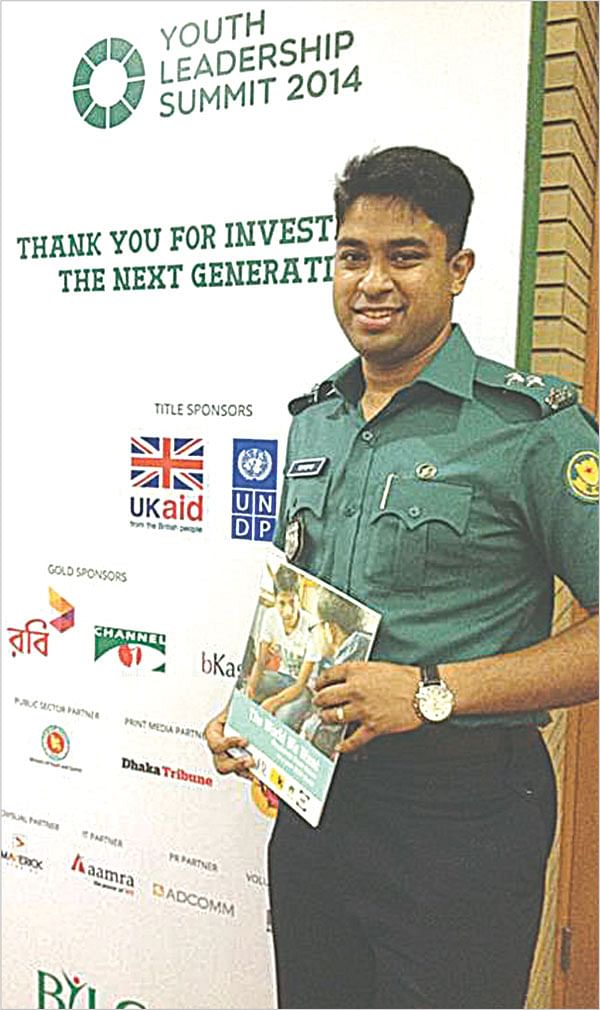Mashroof Hossain, making law enforcement cool

Assistant Superintendent of Police Mashroof Hossain is not just a young police officer. He's a symbol of change in a system that has often been considered static. He initiated the 'Dhaka Metropolitan Police Mobile App' project, which generated much positive response. He also initiated the first 'digital safe zone' in Bangladesh (a 400 metre safe zone under 24/7 police surveillance). As a social media savvy police officer, he initiated new possibilities in the country in terms of using social media as a crime fighting tool. With over 33,000 Facebook followers, Hossain is someone who makes being a police officer look cool and is undoubtedly an inspiration for young people who might consider joining the law enforcement in the future.
SHOUT caught up with him to get his views on social media, fighting crime and this generation in general.
As a young graduate, what inspired you to join the police?
Hossain: Actually law enforcement was the last thing on my mind when I was considering career options. However, I watched a movie (“The Untouchables”, starring Kevin Costner) that changed everything. In the movie, Kevin plays Eliot Ness, a larger-than-life police officer who brings down the mafia empire of Al Capone all by himself. That movie had such a deep impact on me that I told myself, 'Yes, that's exactly what I want to be.' And here I am.
You've used social media a lot for your police work. This was an entirely new concept in Bangladesh. How well do you think social media can serve in fighting crime?
Hossain: Social media is a very effective tool; we have seen its power during the Arab Spring. As a police officer, I started to use social media for work as an experiment, and the result was very encouraging. I personally captured dozens of drug dealers and blackmailers from the information I got from Facebook. I dream that every police station will have a Facebook page where citizens will share their problems and police officers will respond immediately. We've already started this. But there's a lot more we can do. It's very much possible.
How do you feel about juvenile delinquents?
Hossain: I once came across six youths who were arrested for street fighting. I decided not to send them to jail and rather tried to motivate them. It worked! They came back a few months later and it turns out they got into university. They kept thanking me. We just need to motivate misguided youths.
What would you like to say to young people who are reluctant to join the police force?
Hossain: I can understand the negativity that some people have towards it. But it's gradually changing, really. You get to do something for your country. Plus there's always the scope for things like UN missions and you get to directly contribute to social change. I don't think that's any less important than a corporate job or engineering.
Do you think this generation and technology, hand in hand, can change the country?
Hossain: Absolutely! We just need to chase our dreams. There are so many successful young Bangladeshis. There are people like Wasfia Nazreen and Salman Khan (of Khan Academy) whom we all know. And I personally know a few expatriate Bangladeshis working for the New York Police Department. We can do it! We just need to look beyond the negativity and be determined. Our country might not have had the best past or present but the future is there for us to build, and technology makes all that much easier.
Update: A few days after the interview, ASP Mashroof Hossain was transferred to Khagrachhari.

 For all latest news, follow The Daily Star's Google News channel.
For all latest news, follow The Daily Star's Google News channel. 



Comments